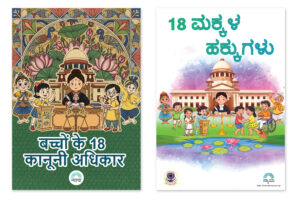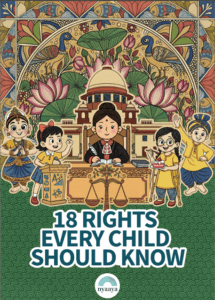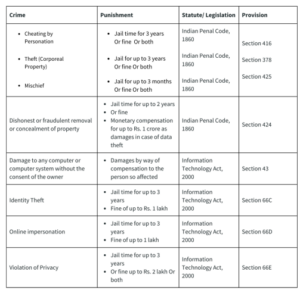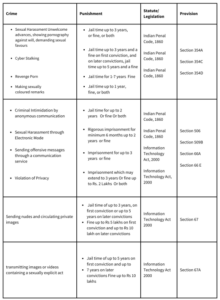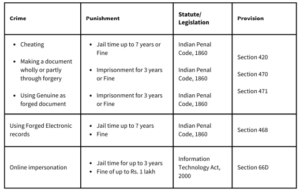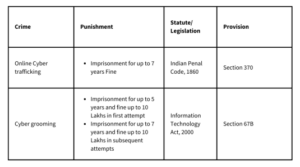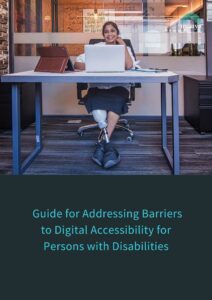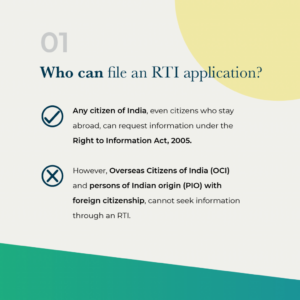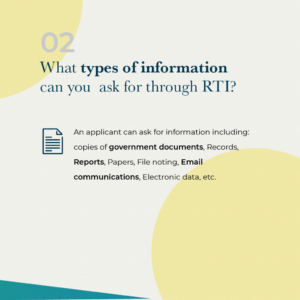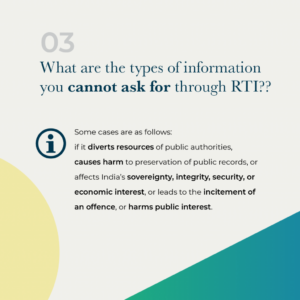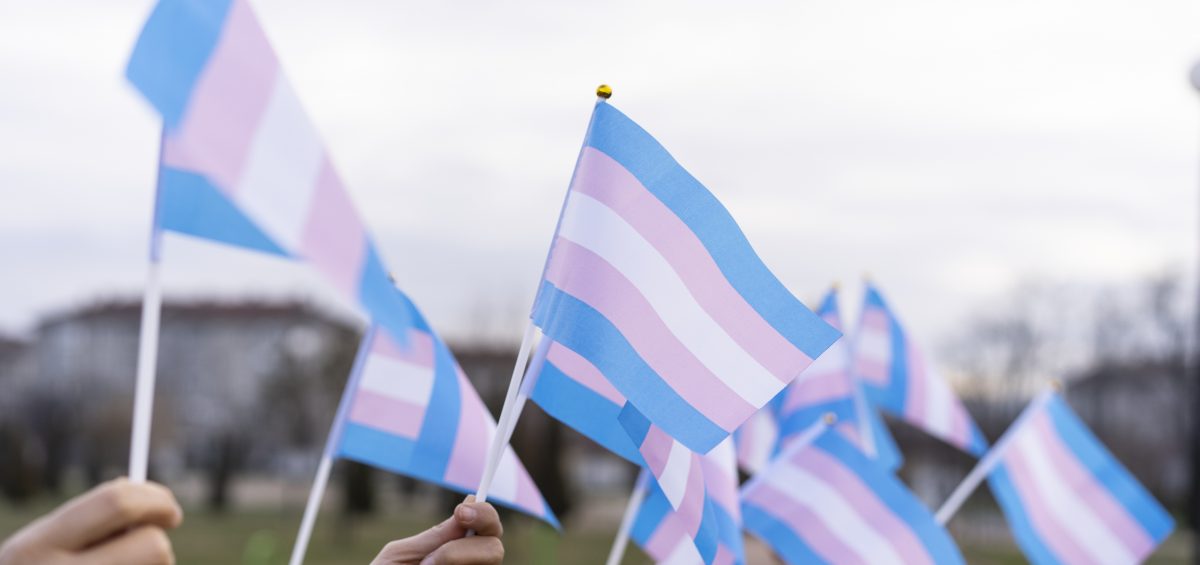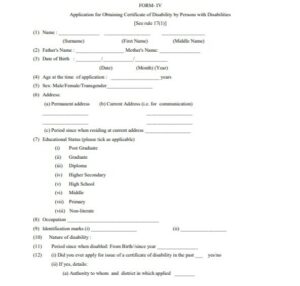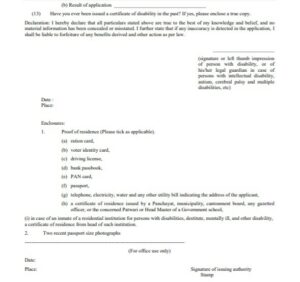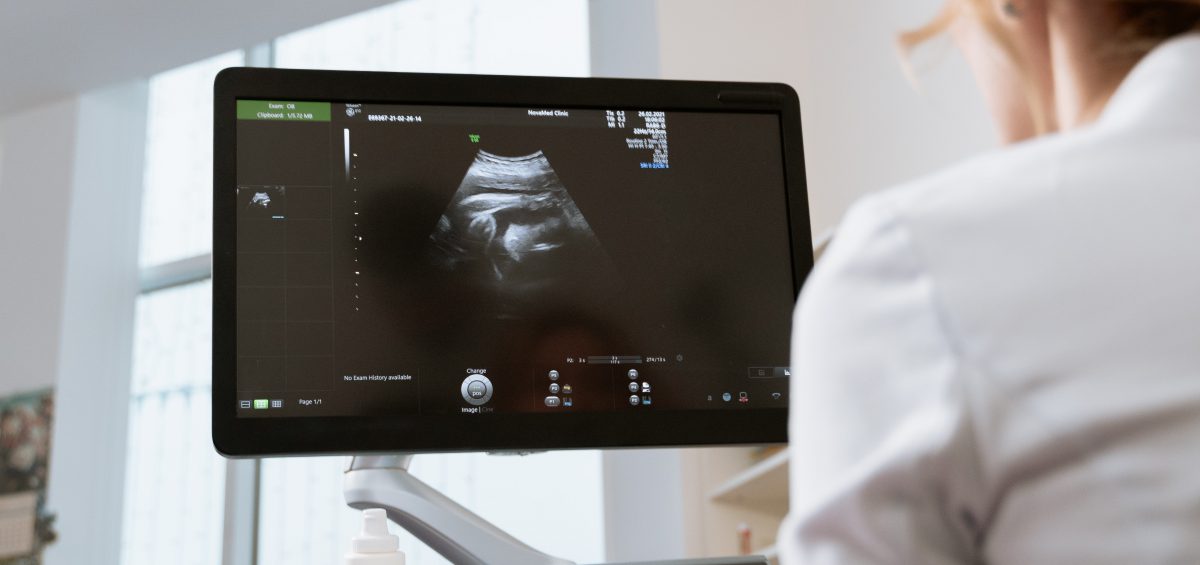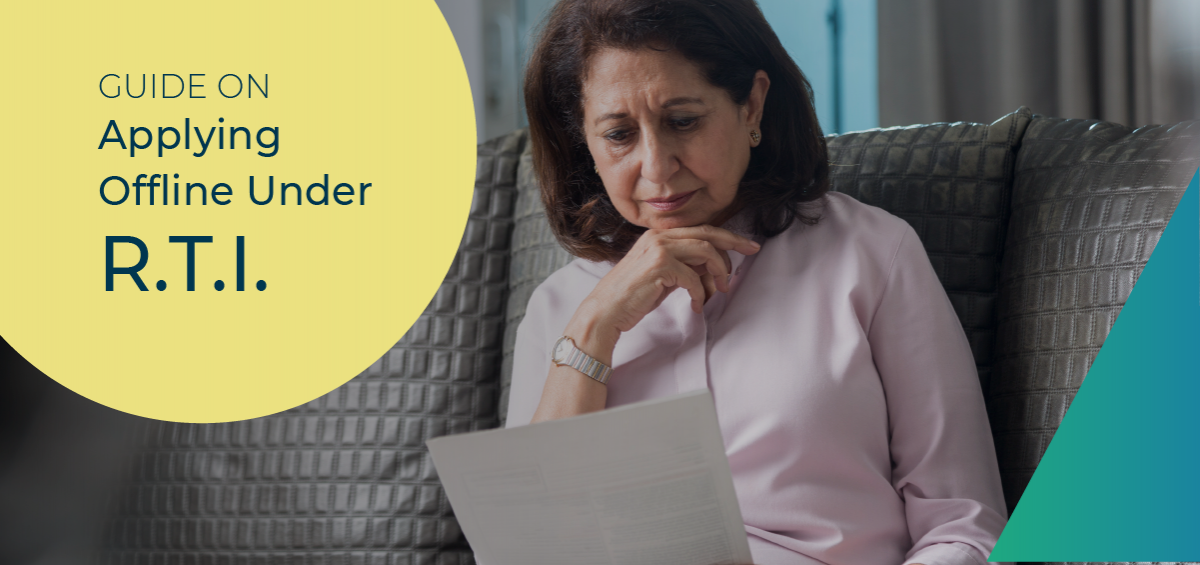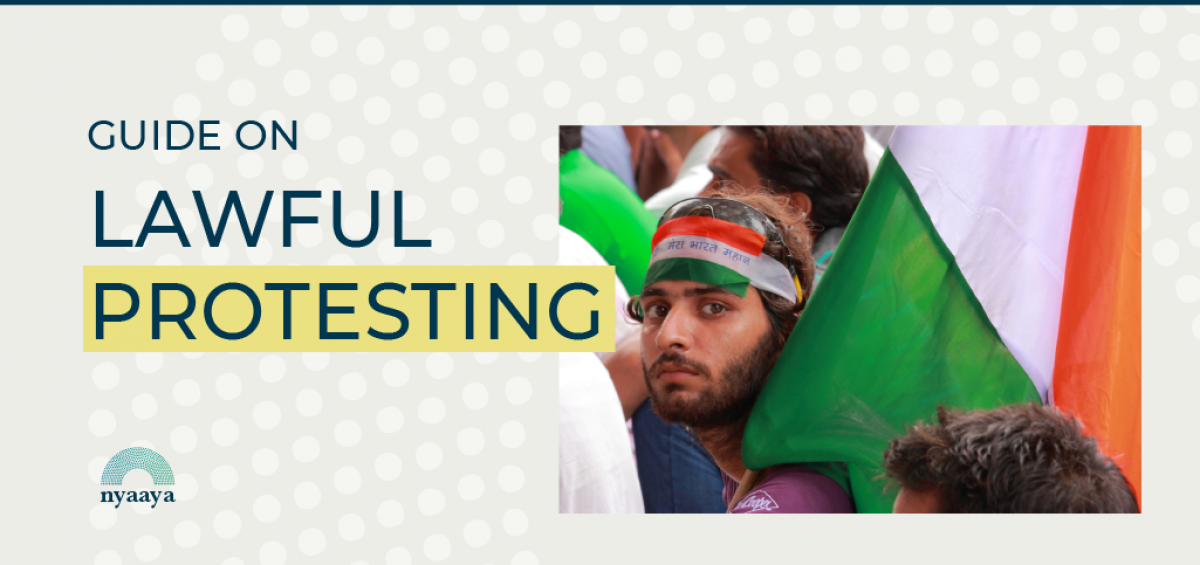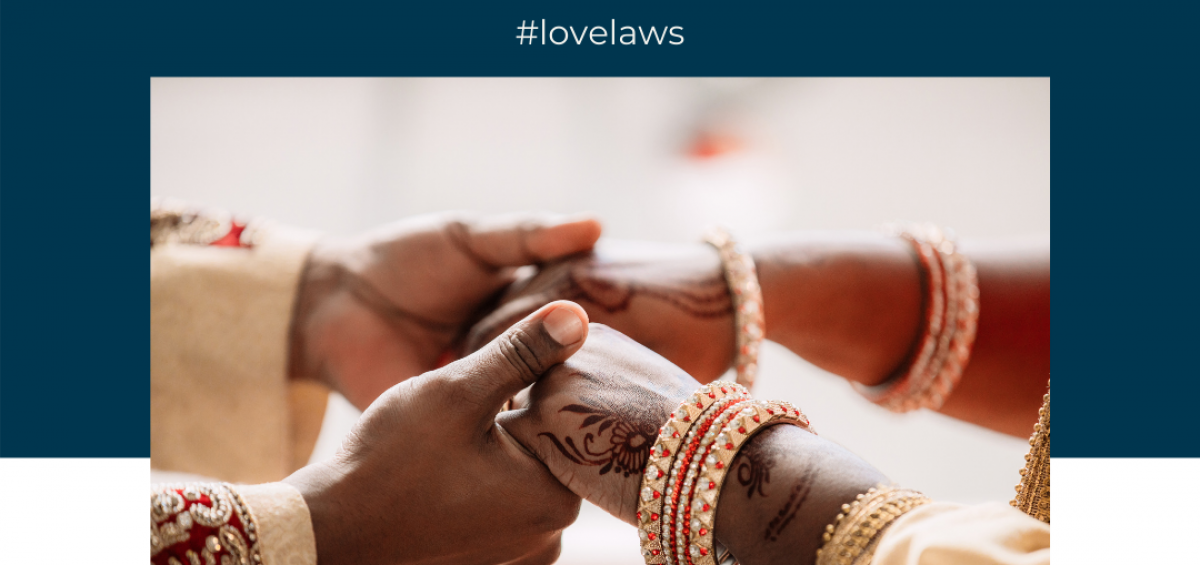How can the guide help you?
The Nyaaya Guide to Accessing Safe Abortions aims to highlight the rights available to women accessing abortions and the processes to be followed for a safe and legal abortion.
What are the laws being discussed in the guide?
The primary laws being dealt with are the Medical Termination of Pregnancy Act, 1971 (MTP Act, 1971), Medical Termination of Pregnancy (Amendment) Act, 2021 (MTP Amendment Act, 2021), MTP (Amendment) Rules,2021), and associated Acts, Rules, High Court and Supreme Court judgments relevant to abortion., We have also referred to the Constitution of India, 1950, The Bharatiya Nyaya Sanhita, 2023 (previously Indian Penal Code, 1860), Protection of Children from Sexual Offences Act, 2012, Rights of Persons with Disabilities Act, 2016, Pre-Conception and Pre-Natal Diagnostic Techniques Act, 1994, Maternity Benefit Act, 1961, among others.As per the 2018 national Sample Registration System data, the total estimate of maternity-related deaths in the country was around 26,437. While the exact percentage of this number contributed by complications from unsafe abortions is difficult to pinpoint, it is an undisputed factor contributing to this death rate. The aim of this guide is to make you aware of your reproductive rights and various processes under Indian law, and to deter women from accessing unsafe abortions and avoiding complications like maternal and infant mortalities and related morbidities.
Data on Maternal Deaths:
|
17
|
2500
|
7363
|
|
Number of points Maternal Mortality Ratio (MMR) has declined by
|
Additional mothers saved annually
|
Estimated Annual Maternal Deaths avoided
|
Are abortions legal in India?
Yes, abortions, or medical terminations of pregnancy, are legal in India. However, there are certain conditions given for going ahead with an abortion.
|
‘Abortion’ is not the term used in law. While ‘abortion’ is the colloquially used term, the law recognises abortions that are in the form of ‘medical termination of pregnancy (MTP)’. The Bharatiya Nyaya Sanhita (BNS), 2023, identifies and penalizes ‘voluntary miscarriage’, which refers to abortions not done in good faith to save the life of the pregnant woman.
In practice, this includes two methods – medical terminations and surgical terminations, which the World Health Organization recognizes as the two safe methods of terminating a pregnancy. Medical termination refers to the use of pharmacological drugs, such as mifepristone and misoprostol, to terminate a pregnancy. The terms “non-surgical abortion” or “medication abortion” are sometimes also used.
On the other hand, surgical termination involves the use of transcervical procedures to terminate a pregnancy, such as vacuum aspiration (which includes the use of a plastic or metal cannula to evacuate the contents of the uterus) and dilatation and evacuation (D&E) procedures (which use osmotic dilators or pharmacological agents to evacuate the uterus).
It is important to note that hysterotomies are rarely used in contemporary abortion practice, as their morbidity, mortality, and cost are significantly higher than those of D&E or medical methods of abortion. The MTP Amendment Act, 2021 included both of these methods in Section 2 Clause 3, which now states that a “termination of pregnancy” under the MTP Act, 1971 means a procedure to terminate a pregnancy by using medical or surgical methods.
|
Do you have the right to demand an abortion?
While you have a fundamental right to make reproductive choices, the final decision about the abortion will depend on whether the registered medical practitioners (RMPs) are satisfied that it is required.
The Supreme Court has linked the right to access abortions and other reproductive health services to the right to life and personal liberty under Article 21 of the Constitution, including the right to decisional privacy. More recently, the Supreme Court held that not only was this right fundamental but that it also extended it to unmarried and single pregnant women. The court ruled that these women, along with married women, have the right to access abortions within the permissible timeframe of 20 to 24 weeks of pregnancy. This decision ensures that all women have equal access to safe and legal abortion services during this period.
This right is not absolute, however, for the MTP Act, 1971 states that RMPs can decide whether a pregnancy can be terminated or not.
TWO DIFFERENT KINDS OF ABORTIONS
Doctors can perform two different kinds of abortions:
- Medical abortions
- Surgical abortions.
When you approach a doctor for an abortion, the first step is to do an ultrasound to ensure that the foetus is inside the uterus. Many times, it can be outside the uterus, for instance, in the fallopian tube. A pregnancy in the fallopian tube can cause a medical emergency and needs an operation.
What happens in a medical abortion?
- A medical abortion is done before 9 weeks of pregnancy by administering two kinds of pills, Mifepristone and Misoprostol. Taken together, they are called “abortion pills”.
- After the doctor has conducted your ultrasound and ensured that you are eligible for a medical abortion, the first type of pill, Mifepristone, will be given to you at the clinic. This pill acts against the progesterone in your body, i.e. cuts off the nutrition to the foetus.
- The second type of pill, Misoprostol, makes your cervix soft to ensure everything comes out like a period.
- The pills must be administered within 24 to 72 hours of each other. This is different depending on which doctor you go to. They can also be taken at home.
- You must visit the doctor again after taking all the medication to check that the abortion has been successfully carried out.
- These pills are only available with a doctor’s prescription and should not be taken without consulting a doctor.
It is illegal for the pharmacist to sell these pills without a prescription. It is a non-bailable offence with imprisonment for up to 2 years, a fine, or both.
What happens in surgical abortions?
- Surgical abortions are done after 9 weeks of pregnancy.
- As the name suggests, a surgical abortion is a surgical procedure that an authorised and experienced doctor conducts on you.
- In this procedure, the doctor will give you a medicine that softens your cervix along with some anesthetic or sedative. Sedation or anesthesia is used to reduce pain and/or trauma during the procedure.
- Doctors use vacuum aspiration and go in through the vagina (outside of the vulva) and suck the contents of the uterus out.
- This is a very safe procedure but it must be done by someone with experience. If inexperienced persons do this, there can be complications like infertility in the long run. Surgical abortions carry rare risks, and the specific risks can vary depending on the stage of pregnancy. Before 14 weeks of pregnancy, the main risks include the need for an additional procedure to remove any remaining pregnancy tissue from the uterus. Additionally, serious complications such as heavy bleeding, damage to the womb, or sepsis may occur in about 1 out of 1,000 women. After 14 weeks of pregnancy, the main risks of surgical abortion include the possibility of needing another procedure to remove parts of the pregnancy that have remained in the womb. Very heavy bleeding can occur in approximately 1 to 10 out of 100 women. Infection is a risk, although it is relatively uncommon. Injury to the womb or the entrance to the womb (cervix) is also a rare occurrence. It is important to note that while these risks exist, they are infrequent. Healthcare professionals who perform surgical abortions are trained to minimize these risks and provide appropriate care before, during, and after the procedure. It is advisable to consult with a qualified healthcare provider to discuss any concerns and ensure a safe and well-managed abortion procedure.
WHEN CAN AN ABORTION BE PERFORMED?
A woman can medically terminate her pregnancy if she is:
- Up to 20 weeks pregnant, with the permission of one RMP if the RMP is of the opinion, formed in good faith, that-
- (i) Continuing the pregnancy would put the woman’s life at risk or cause significant harm to her physical or mental health, or
- (ii) there is a significant risk that the child, if born, would have a serious physical or mental abnormality,
- (iii) If a pregnancy occurs due to the failure of any contraceptive method used by a married woman or her partner, it is considered a valid reason for terminating the pregnancy under the MTP Act.
- From 20 to 24 weeks, with the permission of two RMPs. Women considered eligible for termination of pregnancy up to 24 weeks are survivors of sexual assault or rape or incest, minors, those whose marital status changes during the ongoing pregnancy (eg: widowhood and divorce), women with physical disabilities, mentally ill women, women with fetal malformations that have a substantial risk of being incompatible with life, and women in humanitarian settings or disaster or emergency situations.
- Even after 24 weeks, subject to the permission of the Medical Board, pregnancy can be terminated on grounds of foetal anomalies or to save the life of the pregnant woman.
- At any point in pregnancy, RMPs can perform an abortion if they decide that it is necessary to save the life of the pregnant woman.
|
Requesting an abortion after finding out the sex of the fetus is illegal in India. The law punishes those who request such abortions as well as medical practitioners partaking in identification of sex of the fetus. The punishment for both is jail time upto three years, along with a fine up to Rs. 50,000.
|
For a doctor to legally terminate a pregnancy after 24 weeks, they must believe that there is:
- A risk to the life of the pregnant woman, or grave injury to her physical or mental health.
- A significant risk that if the abortion is not carried out, the child so born would suffer from physical or mental abnormalities and be seriously handicapped.
|
A pregnancy is considered injurious to the woman’s mental health if it is caused by:
- In case of childbirth due to rape, the termination of pregnancy is allowed up to 24 weeks.
- In case of failure of contraceptives or preventive methods, termination of pregnancy is allowed up to 20 weeks, although this applies only to unwanted pregnancies of married women
|
The doctor will consider the pregnant woman’s actual and reasonably foreseeable environment while deciding whether continuation of a pregnancy would affect her mental or physical health.
WHO CAN PERFORM AN ABORTION?
Only doctors who are Registered Medical Practitioners can administer abortions via the pill or surgery.
Abortions conducted by unregistered or unauthorised practitioners or clinics can be unsafe for the woman and can cause severe medical complications contributing to maternal mortality and/or morbidities. Before approaching a clinic or a doctor, it is advisable to find out if they are registered as per law.
The MTP Act is an exception to Section 88 of the Bharatiya Nyaya Sanhita, 2023, which penalizes “voluntary miscarriages” not conducted in good faith to save the life of the pregnant woman. According to the Bharatiya Nyaya Sanhita, 2023, if someone intentionally causes a woman to miscarry, not with the intention to save her life, then they can be punished with up to three years in prison, a fine, or both. If the woman is far enough along in her pregnancy that the movement of the fetus can be felt , the punishment could be up to seven years in prison and a fine. This also applies if a woman causes the miscarriage herself.
If you have reason to believe that the doctor who conducted your abortion or the clinic where it was performed was not authorised, please visit another doctor and/or hospital. You can file a complaint to the police and report such unauthorised persons or clinics as well. You can find the punishments for unauthorised persons and clinics conducting abortions here. Additionally, if you have reason(s) to believe that an RMP has not behaved professionally or violated general practices, you may file a complaint with the concerned State Medical Council through their online portal-https://www.india.gov.in/lodge-your-complaint-or-send-suggestion-medical-council-india
|
Even though the police and/or courts may not punish you for approaching an unregistered practitioner or an unauthorized clinic if you did not know that they were not authorized at the time of the abortion, abortions that are conducted outside the scope of the MTP Act are technically illegal. Therefore, to limit your liability under the law, we recommend that you only visit an authorized doctor as soon as possible and get yourself checked. Medical complications from an unsafe abortion can be severe and further harm your health.
REMEMBER: It is important to complain about such persons and/or clinics to prevent unsafe abortions.
|
In emergency situations, where a doctor who is not a registered medical practitioner needs to conduct an abortion to save the life of the pregnant woman, they can do so in good faith. The number of RMPs whose opinions are needed to perform the abortion, however, differs at each stage:
- 0-20 weeks: 1 RMP
- 20-24 weeks: 2 RMPs
- 24- 36 weeks: the medical board in a Government-Approved Facility
|
The PCPNDT Act specifically targets sex-selective abortions, imposing imprisonment of up to 5 years and fines of up to ₹1,00,000 on individuals, including doctors, clinics, or family members, involved in sex determination or facilitating sex-selective abortions. Under the BNSS, actions causing harm or death during illegal abortions may attract charges such as culpable homicide (Section 104) or causing grievous hurt (Section 125), with punishments ranging from several years to life imprisonment.
|
WHOSE CONSENT IS NEEDED FOR AN ABORTION?
A woman above the age of 18 seeking an abortion does not require anyone else’s consent or permission to obtain it. Only her consent is required. To ensure proper consent is taken, the doctor/clinic will make the woman requesting an abortion sign Form C.
Consent form to be signed by woman requesting abortion
Some doctors will require another person to be there with you during and after the procedure. Having an abortion can be a traumatic experience, both physically and mentally. You need someone to help you as the effects of anesthesia take some time to wear off, and to be there for you in case you face anxiety or need any other form of support.
In case a pregnancy is requested for a minor, the consent of her parent or guardian is required. In cases of abortions requested for mentally ill persons, the consent of the guardian is required.
Under the POCSO Act, girls under the age of 18 cannot seek safe, legal abortion without their guardian’s consent, even though they might meet all other requirements.
Under the Rights of Persons with Disabilities (RPWD) Act, 2016, an individual with a disability has the same rights to bodily autonomy as others.
In cases of abortions requested for mentally ill persons, the consent of the guardian is required.
Further, in cases of ‘severe disability’, abortion is permissible with the consent of the guardian after seeking the opinion of a medical practitioner.
|
REMEMBER: Married women do not need the consent of their partner before terminating their pregnancy. Only the woman’s consent is required. Doctors are not required to ask women to furnish their marriage certificate to conduct an abortion.
|
Abortion for Minors
All doctors are legally obligated to report a pregnancy of a minor in India. This is because the age of consent in India is 18 years, and a pregnancy of a woman below this age is considered a result of rape.
This is a mandatory requirement for all doctors, not just the ones conducting abortions. For instance, an ophthalmologist who conducted an eye exam on a pregnant minor was arrested for not reporting such a pregnancy.
This duty to report applies in cases of married minors too.
Consent form to be signed by an abortion seeker:
|
Form C
(See rule 8)
I ________________ daughter/wife of_______________ aged about _____ years of __ (here state the permanent address) __ at present residing at _____________________________
do here by give my consent to the termination of my pregnancy at ___(State the name of place where the pregnancy is to be terminated)__
Place:
Date:
Signature
(To be filled in by guardian where the woman is a mentally ill person or minor)
I_________________________son/daughter/wife of__________________ aged about __________ years of _____________________at present residing at __(Permanent address ) ____ do hereby give my consent to the termination of the pregnancy of my ward ______________________ who is a minor/lunatic at ____(place of termination of my pregnancy)__.
Place:
Date:
|
|
REMEMBER: Married women do not need the consent of their partner before terminating their pregnancy. Only the woman’s consent is required. Doctors are not required to ask women to furnish their marriage certificates to conduct an abortion. Also, marital rape is recognized as “rape” under the MTP Act.
|
WHERE CAN AN ABORTION BE CONDUCTED?
All hospitals established/maintained by the Government or hospitals approved by the Government to perform abortions are allowed to carry out procedures to terminate pregnancies.
As for private facilities, only those with a certificate granted by a District Level Committee can perform abortions.
|
SAFE ABORTION
|
UNSAFE ABORTION
|
|
Government authorised hospitals and private facilities with a certificate to perform abortions
|
Illegal vans with mobile ultrasound units
|
There have been recent cases of illegal abortions being conducted in vans with mobile ultrasound units. According to rules under the PCPNDT Act, your ultrasound machine has to be registered, and remain in the authorised place and cannot be moved. In Uttar Pradesh, tracking devices are now being added to ultrasound machines so every single ultrasound you do will be tracked.
Would you be punished for availing an abortion from an unauthorised place?
If the pregnancy is causing significant distress to your mental health, the MTP Act protects you from punishment in such a case.
How can you ensure the clinic or the doctor conducting your abortion is authorised to do so?
- You must ensure that the doctor conducting the abortion has an MBBS degree. Doctors with BAMS, BMS, BHMS degrees are not legally authorised to perform abortions.
- You can also check if your doctor has a postgraduate degree after the MBBS degree, such as an MS degree, in the field of gynaecology or obstetrics, but this is not an essential requirement. However you must ensure that they have a certification of a 6 months authorised course from a government approved centre.
- There is no combined list of authorised centres online, but you can check if you are at an authorised clinic by checking if the doctor is an MBBS doctor working in a gynaecology and obstetrics related setting.
- In a village or a rural area, ensure that the doctor has at least an MBBS degree, because even medical abortions can be life threatening.
- The MTP Act does not allow for doctors with training in alternate forms of medicine (such as AYUSH or Ayurveda, Yoga & Naturopathy, Unani, Siddha, Sowa Rigpa, and Homoeopathy) to legally perform abortions.
WHAT QUESTIONS CAN THE DOCTOR ASK YOU BEFORE CONDUCTING AN ABORTION?
The doctor will ask yu for the following details (probably as a form to be filled):
- Your age
- Your consent (Note: Nobody else’s consent is required here)
- Previous medical condition, if any – like bleeding disorder, etc.
- Any previous children
- Any previous medical or surgical abortions conducted
- Any allergies to any of the medications they will administer during an abortion
- Date of your last period to calculate the age of the pregnancy.
Things that you don’t need for an abortion:
- Disclosure of your marital status – If the pregnancy is having a significant impact on your mental health, you are within your rights to seek an abortion.
- Anybody else’s consent – If you are above the age of 18 years and of sound mind, you do not need your partner’s or parent/guardian’s consent to get an abortion.
In some cases, the hospital/clinic may ask you to bring someone along with you for support after the abortion is done. This does not mean that their consent is required for the procedure.
Will the clinic keep your information private?
Yes, under Sections 4 and 5 of the Medical Termination of Pregnancy Regulations, 2003 the head of the hospital will keep information related to the termination of pregnancy (including the consent form) in safe custody.
An admission register will contain the serial number given to the patient for the termination of pregnancy, and the register will be kept secret as well. The clinic will keep this register for 5 years, after which it will be destroyed. The details about the pregnant woman will not be disclosed to anybody, be it family members, police, or specific authorities mentioned in law. If someone unlawfully leaks this information, they will face legal consequences, including charges under the Bharatiya Nyaya Sanhita (BNSS) for defamation (Section 499), insulting modesty (Section 509), or breach of privacy (Section 354C), punishable by imprisonment up to 3 years and/or fines. If the disclosure occurs electronically, the Information Technology Act, 2000, imposes penalties under Section 66E (up to 3 years imprisonment or ₹2 lakh fine) or Section 72 (up to 2 years imprisonment or ₹1 lakh fine). Medical professionals breaching confidentiality may also face disciplinary action, including license suspension by the National Medical Commission (NMC)
The Court can request to see this register in medico-legal cases. Such cases include victims covered under the POCSO Act and terminations under the PCPNDT Act, among others. In such cases, only the Court will have access to copies of the register and no one else.
Even when your doctor refers you to another doctor for a treatment related to your abortion, the details of your abortion must be kept private.
Can you get medical leave from work after an abortion?
Yes, if the woman asks for a certificate, the doctor can grant a certificate to the woman upon termination of her pregnancy for her to get medical leave from work. Once a certificate is submitted to the employer, they are prohibited from disclosing these details to anybody.
Section 65(12) of the Maternity Benefit Act, 1961(Maternity Benefit Act) also provides for a paid leave of 6 weeks starting from the date of medical termination of pregnancy.
At some workplaces, you can take a paid leave if you have an illness arising out of the abortion procedure you underwent. Such leave can be availed under the maternity benefits law. To check if your workplace is covered under this law, read this explainer.
The Court can request to see this register in medico legal cases. In such cases, only the Court will have access to copies of the register and no one else
Even where your doctor refers you to another doctor for a treatment related to your abortion, the details of your abortion must be kept private.
MYTHS AROUND MEDICAL ABORTIONS
|
MYTH
|
FACT
|
|
Abortions cause infertility.
|
If performed correctly, abortions will not make you infertile. However, if you are given an abortion when you have had an ectopic pregnancy that causes you to lose one of your fallopian tubes, it will impair your fertility (it still won’t make you infertile).
|
|
Abortion causes PCOS or breast cancer.
|
No, abortions don’t cause either.
|
|
Safe abortions done by doctors do not cause any damage to the uterus.
|
If you get an abortion from an untrained doctor, there could be chances of complications.
|
RESOURCES
The medical information on abortions in this guide has been provided by Dr Tanaya Narendra, also popularly known as Dr. Cuterus. More information on reproductive rights and sexual health can be found on her handle here.
Legislation:
Medical Termination of Pregnancy Act, 1971
Medical Termination of Pregnancy Rules, 2003
Medical Termination of Pregnancy Regulations, 2003
The Pre-conception and Pre-natal Diagnostic Techniques (Prohibition of Sex Selection) Act, 1994
Guidelines:
Safe Abortions: Technical and Police Guidance for Safe Abortions, World Health Organisation
Case law:
Suchita Srivastava & Anr vs Chandigarh Administration
Devika Biswas vs. Union of India
Checklists
- Ensure you visit a doctor and have an ultrasound done before getting an abortion.
- Ensure the place or the doctor you are visiting to have the abortion is registered and authorised under law.
- Ensure you read Form C carefully before signing it. As an adult woman, only your consent is needed for the procedure.
- If someone is forcing you to get an abortion, please file an FIR with the police.
Sample Forms
Consent form to be signed by woman requesting abortion
|
Form C
(See rule 8)
I ________________ daughter/wife of_______________ aged about _____ years of __ (here state the permanent address) __ at present residing at _____________________________
do hereby give my consent to the termination of my pregnancy at ___(State the name of place where the pregnancy is to be terminated)__Place:
Date:
Signature(To be filled in by guardian where the woman is a mentally ill person or minor)
I_________________________son/daughter/wife of__________________ aged about __________ years of _____________________at present residing at __(Permanent address ) ____ do hereby give my consent to the termination of the pregnancy of my ward ______________________ who is a minor/lunatic at ____(place of termination of my pregnancy)__.
Place:
Date:
|
Certificate Issued to Clinic/Hospital authorised to conduct abortions
|
Form B
(See sub-rule (6) of rule 5)
Certificate of approval.
The place described below is hereby approved for the purpose of the Medical termination of Pregnancy Act, 1971 ( 34 of 1971).
AS READ WITH IN UPTO ————-WEEKS
Name of the Place
Address and other descriptions
Name of the owner
Place:
Date:
to the Government of the ________________
|
Form available at
https://main.mohfw.gov.in/acts-rules-and-standards-health-sector/acts/mtp-rules
This guide was updated and reviewed by Kanav Narayan Sahgal. For any questions or concerns, please reach out at kanav@nyaaya.in
